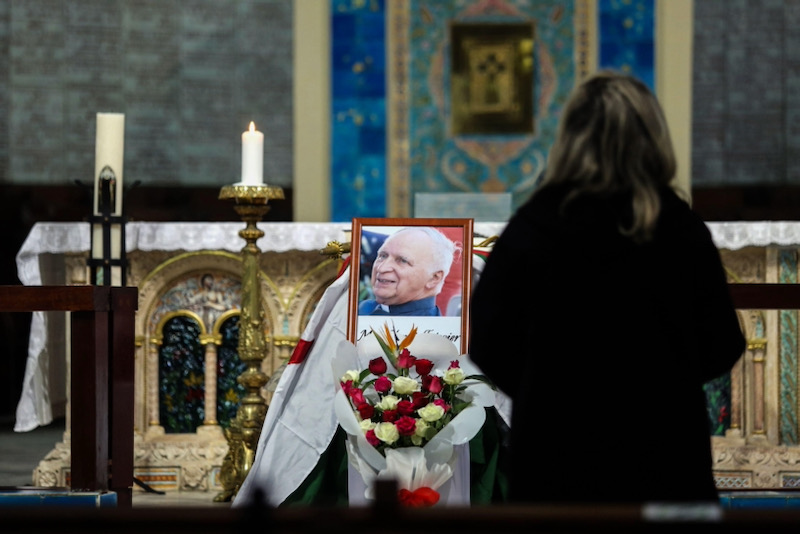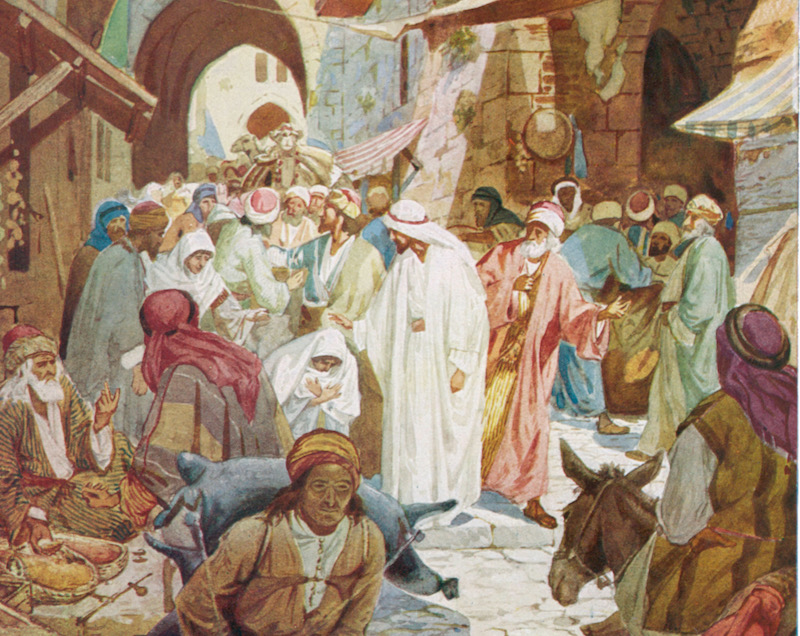No episode in the gospels is as rich in engaging, human detail as this one. The context of this narrative masterpiece is a section of Mark’s gospel about faith. It opened in last week’s gospel with the terrified disciples on the storm-tossed Sea of Galilee so afeared for their lives, that Jesus asks them: “Have you still no faith?” And, in next week’s gospel, the section ends in Jesus’ hometown, where his kinsmen’s want of faith makes it impossible for him to work any miracle.
Jesus, we’re told, was “amazed at their lack of faith”. In between these two episodes, and in stark contrast to the weak, or non-existent faith of his followers and family – all people on the inside, so to speak – the trusting, determined faith of Jairus and the woman with the crippling ailment – both, for different reasons, outsiders – epitomises faith’s miraculously transforming power. Yet again, the gospels uncomfortably intrude on our damaging complacency about who’s ‘in’ and who’s ‘out’.
Jairus is the president of a synagogue, a pillar of the establishment. The last time in Mark’s narrative that Jesus had anything to do with a synagogue, the religious establishment were plotting his death. The feisty woman with what must have been a gynaecological problem isn’t just physically (and financially) debilitated but, much more significantly in the context, ritually and socially ostracised. Her life would have been made even more unbearable by the fact that anybody in contact with her would also incur exclusion: ritual uncleanness was highly contagious. So, when the poor woman touched Jesus, she was breaking the strictly enforced purity laws, causing grave scandal, not to say horror, among the crowd.
But, in another reversal so characteristic of the gospels, instead of making Jesus unclean, she herself is made clean by contact with him, as well as cured of her ailment. In other words, not only is her health restored but also her identity: Jesus calls her ‘daughter’, emphasising that she’s once more part of the family of faith, a daughter of Abraham. And, again, in yet another characteristic reversal, Jesus tells her that it is her faith that has saved her. This would have been another source of scandal: Jesus was praising faith in one who was unclean and, even worse, in one who had before their very eyes so blatantly disregarded the purity laws. Jesus is making it plain to all that her hopeless situation has been miraculously transformed by a power not her own, by the gift of faith in him, in other words. Later, the opposite will be the case: in his own town and among his own family and familiars, it is lack of faith that makes the working of miracles impossible.
By this time in the narrative, the situation of Jairus’s daughter has also reached the point of hopelessness. But, even in the face of his daughter’s death, Jairus is told by Jesus to believe. Again, his exhortation to faith is met with incredulity and even mockery. But, again, the synagogue official’s faith is unswerving, and his daughter is raised to life. These two healing miracles make it plain that faith points us beyond what is humanly possible; in faith, borne of love, we hope for what we could never do for ourselves. The seed of something that transcends all the limitations of this life has been sown within us and comes to maturity with the gift of faith: a gift whose origin and object is the limitless, unfailing love we call ‘God’. Faith is the first stage in this life of sharing the life of God for all eternity.
Much, of course, still, as yet, stands in the way of our fully sharing his life. Our sins are all, in their different ways, failures of faith, symptoms of fear, which is, as with the disciples on the Sea of Galilee, the opposite of faith. The chief fear for all of us is, of course, abandonment, that we are ultimately alone, that we don’t, in the end, matter, the fear that we are not loved.
But faith is a kind of knowledge borne precisely of love – God’s love for us – which makes possible our love for him. Ultimately, what we mean by ‘God’, is a love unlike all others, a love that, uniquely, can never fail us, an accepting love that is absolute and unconditional, regardless of, by which I mean, not dependent on, what we do or don’t do. It is the love that brought us into existence in the first place, that sustains us in existence even now, and that desires our presence and company for all eternity. God, in other words.
And to believe that God can’t stop loving us (this is not a limitation of God’s power but a contradiction in terms) liberates us from both sin, rooted in fear, and from the neurotic need always to be right and righteous, at least in the eyes of others. It liberates us from the illusion of invulnerability and enables us to live with inadequacy and weakness and sinfulness, in neither resignation nor complacency but in hope. In the end, to believe is to have faith that God’s love is the ultimate truth not just of our own lives, but of the universe itself: “the love that moves the sun and the other stars”, as Dante’s last words of the Commedia have it. Only that knowledge, which is faith, liberates us to live and love fully.



 Loading ...
Loading ...
What do you think?
You can post as a subscriber user ...
User comments (0)